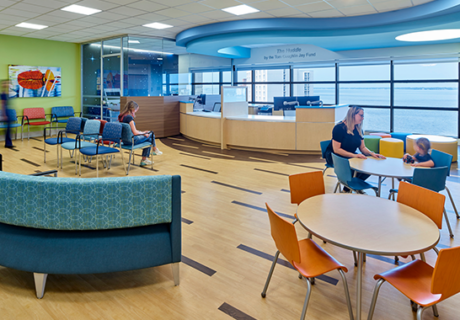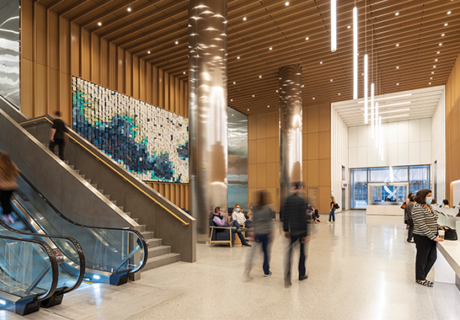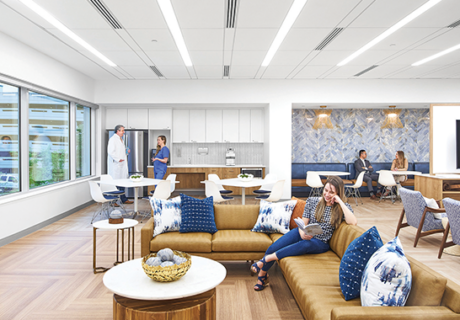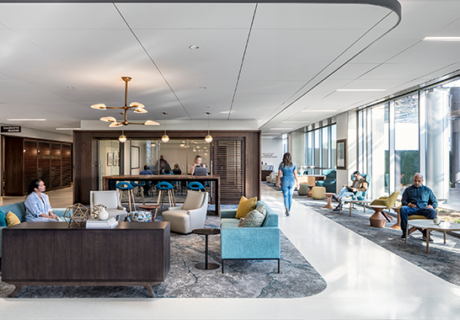PHOTO TOUR: Fort Worth Adolescent And Young Adult Oncology Coalition Unit
The Fort Worth Adolescent and Young Adult (AYA) Oncology Coalition Unit at Baylor Scott & White All Saints Medical Center—Fort Worth is bridging a gap in cancer care for young adults. Opened in June, the facility cares for patients ages 18 to 29, making it the first AYA oncology inpatient unit within an adult healthcare facility in the U.S.
HKS Inc. Dallas/Fort Worth, and Edwards + Mulhausen, Austin, worked with the Fort Worth Adolescent and Young Adult Oncology Coalition (FWAYAOC) to design this one-of-a-kind space. “We needed to address the needs of young adult patients—patients in between the care of pediatrics and adult cancer facilities,” says Dr. Karen Albritton, FWAYAOC’s chairperson. “Our goal was to provide a place that closely matches AYA environments outside of a hospital setting so that young adults feel comfortable, acknowledged and supported during their cancer treatment … We want them to see, feel and think about cancer differently.”
The design team led a visioning process that started with a blank slate, unconfined by preconceived notions of what a traditional cancer unit looks like. “This whole place started as a thought, to a virtual plan, and then to a reality,” says Paula Fultz, FWAYAOC’s vice-chair.
FWAYAOC members as well as patients, family, and community members were involved in the process, which ultimately led to an open, modern design defined by an array of colors, textures, and depths—all while remaining warm and welcoming. There are spaces in the unit where patients can go to be contemplative and quiet. If patients want to socialize, they can gather with family members and friends in the living room to watch TV and play video or board games.
“The center makes me feel like I am at home—not in a hospital,” says Sergio Nava, a young adult patient at the FWAYAOC unit. “More importantly, it’s a place where I can spend quality time with my family. Instead of focusing on my cancer diagnosis, my kids and I can hang out in the lounge and play games or work on puzzles. There are a lot of things we can do together. I feel blessed to be able to receive treatment at a place like this.”
Other features include deep, built-in seating throughout and an “encouragement wall,” where patients can write meaningful messages of support. “Providing a comfortable, functional space for patients to hang out with friends or their family members was an important priority during our design process,” says Corrine Kipp, senior interior designer at HKS. “We also wanted the space to be inspiring.”
The project was especially important to Evelyn Reyers, associate principal at HKS and a cancer survivor. “I understand the many emotions associated with this disease,” Reyers says. “My objective was to make sure HKS—working with the talented and dedicated coalition—designed this center to be uplifting, inspiring and supportive. It makes me proud to hear stories about how the center is making dramatic changes in cancer center patients and their families’ lives.”











